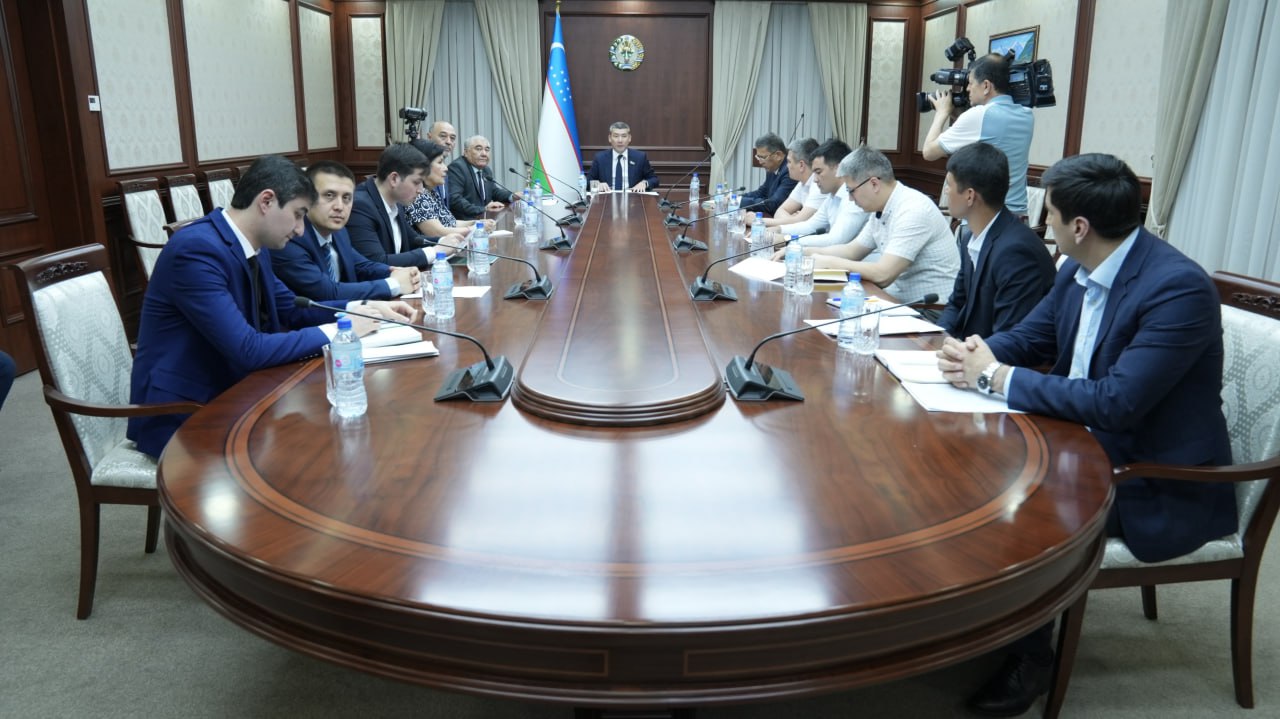On May 1, a regular meeting of the Committee on Information Policy and Ensuring Openness Government Bodies of the Senate of the Oliy Majlis was held.

On May 1, a regular meeting of the Committee on Information Policy and Ensuring Openness Government Bodies of the Senate of the Oliy Majlis was held.
The meeting with the participation of senators, members of the standing commissions of local councils of people’s representatives, senior officials of relevant government agencies and organizations, experts and media representatives, reviewed the results of the monitoring conducted by the Anti-Corruption Agency regarding the timely placement by government agencies and organizations of socially significant information to be posted as open data on the Open Data Portal (data.gov.uz) and their official websites for 2022 and the first quarter of 2023.
Akmal Burkhanov, Director of the Anti-Corruption Agency, provided information on the agenda.
For the first time this year, the Agency announced the Openness Index, assessing the activities of government agencies and organizations in providing openness of the work. The rating assessment included 86 government agencies, including 21 ministries, 14 local executive authorities, 32 entities with a state share, 19 committees and agencies.
The results of the Openness Index, aimed at assessing the effectiveness and efficiency of the ongoing work to ensure openness in government agencies and organizations, were brought to the attention of the general public through Open.index electronic platform.
For the purposes of a comprehensive and high-quality organization of the assessment processes, the Agency over the past period has provided regular methodological and practical assistance to officials in charge of providing openness of their organizations.
Systematic training of officials in charge was launched, in particular, 200 officials underwent 10 advanced training courses organized in 2022 with the involvement of foreign specialists.
During mutual discussions, special emphasis was placed on the issue of taking measures to include nongovernmental organizations, as well as regional divisions of ministries and departments in the assessment in 2023.
The meeting also critically reviewed the fact that most government agencies and organizations do not fully publish information on public procurement in the relevant information resources.
The participants of the event also paid attention to the state of broadcasting the sessions of the Jokargy Kenes of the Republic of Karakalpakstan, regional, district, city councils of people’s representatives on local TV channels, as well as on the Internet, provided for by Decree of the President of the Republic of Uzbekistan No. DP-6247 of June 16, 2021.
According to the monitoring results for 2022, only 61 out of 245 sessions held by people’s representatives of the Jokargy Kenes of the Republic of Karakalpakstan, regional and Tashkent city councils were broadcast live through local TV channels or the Internet.
And on the scale of city and district councils of people’s representatives, out of 3154 sessions, only 750 were broadcast.
The participants of the meeting agreed on the establishment of permanent control by the chairs of the standing commissions on information policy of local councils over ensuring the openness of processes.
Information was also given about the new rules for ensuring openness in the new edition of the Constitution and their importance.
Based on the issues discussed, tasks were identified to be implemented by the Anti-Corruption Agency to further strengthen openness processes.
In particular, it was noted that it is necessary to approve standard forms of socially significant information to be posted by government agencies and organizations on their official websites, as well as to widely use the powers to hold to account responsible for the violation of the law on the openness of the activities of government authorities and administration.
In addition, a number of proposals and recommendations were made to increase attention not only to the timely placement of open data, but also to their quality, as well as to the widespread introduction of digital monitoring and assessment, aimed at drastically reducing the human factor.
Press Office
The Anti-Corruption Agency







